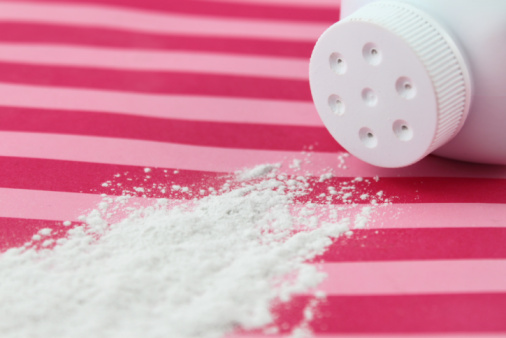Talc Powder Lawsuit Yields $12 Million Verdict for Mesothelioma Patient

Plaintiff Patricia Schmitz alleged in her product liability lawsuit against Johnson & Johnson and Colgate that the defendants’ talcum powder products resulted in her development of mesothelioma, a rare form of cancer. Earlier in June, a California jury agreed with Ms. Schmitz and ordered the defendants to pay the plaintiff $9.6 million in damages.
Breakdown of the damages
Johnson & Johnson and Colgate were both named as defendants because the plaintiff used J&J’s Baby Powder and Shower-to-Shower products, as well as Colgate’s Cashmere Bouquet, another talc powder product. The plaintiff also used talc powder from Avon Products, but the company was not named as a defendant in the lawsuit. Instead, J&J has been ordered to pay Ms. Schmitz $4.8 million each. Avon Products was found to be responsible for $2.4 million in damages, bringing the total to $12 million.
Punitive damages are awarded to plaintiffs when the jury determines that the defendants’ conduct was particularly egregious, requiring monetary punishment. In this particular case, the jury was unable to come to a consensus regarding punitive damages.
Allegations of asbestos in talc powder
This product liability lawsuit and others like it were based on allegations of asbestos in talc powder. Asbestos is known to be a highly dangerous, carcinogenic substance that causes mesothelioma, an aggressive type of lung cancer. J&J has consistently denied for years that its products may contain asbestos. Asbestos is known to naturally occur alongside talc mineral deposits.
Despite the company’s denials, internal memos were recently published that suggested company executives knew of the presence of asbestos in the talc powder. However, the company stands by its denials, pointing to dozens of studies that found talc powder to be safe for use.
“We will pursue an appeal because Johnson’s Baby Powder does not contain asbestos or cause cancer, as supported by decades of independent clinical evidence,” said a spokesperson for J&J in the wake of the Schmitz verdict. The spokesperson went on to point to “serious procedural and evidentiary error” in the Schmitz trial that may provide the basis for an appeal and that had led the company to move for a mistrial during the trial.
Thousands of talc powder lawsuits are still pending
Ms. Schmitz may have had her day in court, but thousands of other plaintiffs are still awaiting justice. About 13,000 talc powder lawsuits have been filed against Johnson & Johnson. The allegations in those lawsuits echo those of Ms. Schmitz’s. However, many of the pending lawsuits were filed with regard to ovarian cancer, rather than mesothelioma.
While mesothelioma may develop when a person inhales asbestos particles, ovarian cancer is thought to develop when talc powder that allegedly contains asbestos is used for feminine hygiene purposes. Some of the plaintiffs had been using talc powder for years, if not decades, before developing cancer. They claim the defendants failed to provide adequate warnings of the risks of talc powder usage.
A few other talc powder lawsuits have also been resolved through trial. Recently, a California jury awarded $29 million to a woman who alleged she developed cancer after using the products.
Additional resources:
- Consumer Affairs, Johnson & Johnson loses another lawsuit over its baby powder, https://www.consumeraffairs.com/news/johnson-johnson-loses-another-lawsuit-over-its-baby-powder-061319.html
- CNBC, J&J, Colgate ordered to pay nearly $10 million in California talc cancer case, https://www.cnbc.com/2019/06/12/jj-colgate-ordered-to-pay-nearly-10-million-in-california-talc-case.html

